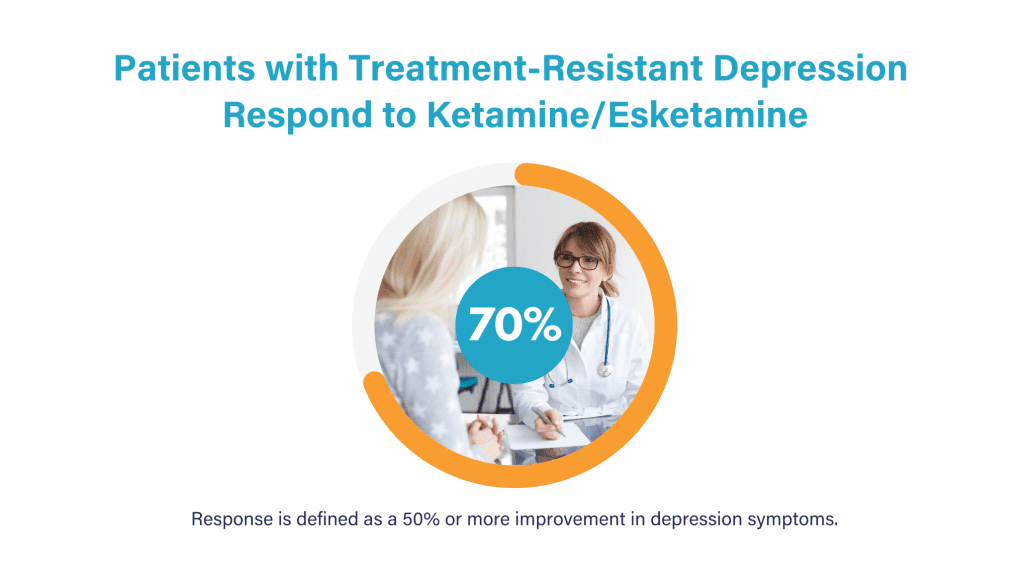Ketamine Benefits & Risks
Many of our patients have experienced tremendous results from ketamine/esketamine.
We have administered nearly 9,000 ketamine/esketamine treatments at our mental health clinic.
Benefits of ketamine and esketamine (Spravato) for depression:
Like most powerful medications, ketamine or esketamine may cause serious side effects, including:
- Increased blood pressure and heart rate. Ketamine or esketamine can cause a temporary increase in blood pressure that may last for about 4 hours after taking a dose. Your healthcare provider will check your blood pressure before each treatment session to ensure it is safe to start treatment. We will also monitor your vital signs during treatment and for at least 2 hours after ketamine or esketamine is given.
- Problems thinking clearly.
- Bladder irritation.
- Potential for addiction. Addiction risks increase with exposure. Once a patient responds to ketamine/esketamine, we will lower the dosage, frequency, or both, or cease treatment. We will then move to antidepressants, TMS, or VNS to maintain the antidepressant effects of the ketamine treatment.
- Other temporary side effects of ketamine or esketamine may include dissociation, dizziness, nausea and vomiting, sedation, reduced sense of touch and sensation, anxiety, lack of energy, and feeling intoxicated/euphoric.
Ketamine results:
Ketamine/esketamine has a very high success rate for those with treatment-resistant depression. 70% of patients who have not responded to other treatments will experience an immediate, short-lived response. Once patients respond to ketamine/esketamine, the antidepressant response can typically be maintained by other treatment methods such as antidepressant medications, TMS, and VNS.
We can compare this to the 6.9% chance of response that patients had when they tried a 4th antidepressant in the STAR*D study.
Ketamine Treatment Options
Learn more about the different ways ketamine is given at our clinic.


